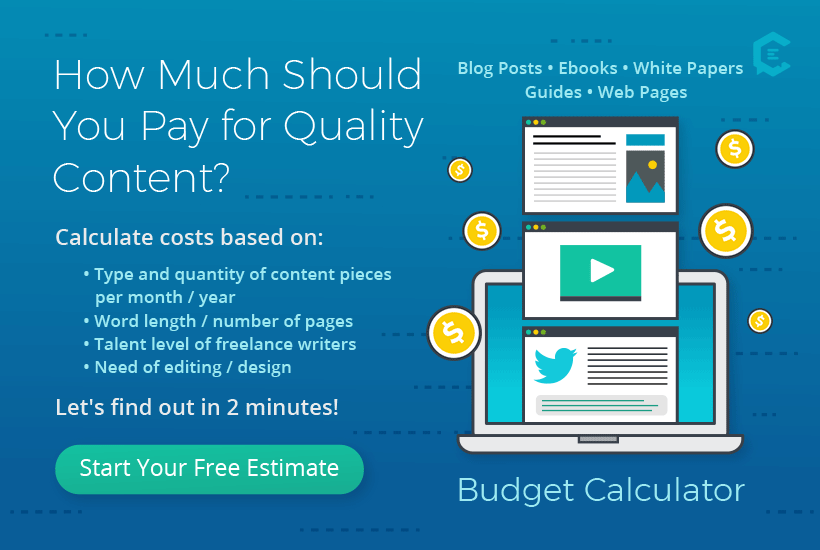The media landscape is a scorcher these days, am I right? Journalism — whether in business, politics, restaurant reviews and world news — has been almost completely superseded by hot takes. However, the people delivering the hot takes tend to be entrepreneurs, media types, politicians and others in search of a spotlight. Corporate executives with the true power to hire and fire are typically much more reserved/heavily edited. (The global headlines inspired by high-profile exceptions like Jeff Bezos and Elon Musk are a clear demonstration of what most companies want to avoid.) For the most part, executives are allowed to be intelligent on social media — but not in a way that may attract Twitter’s ire.
The easy way to do this is to let communications and social media teams carefully craft an “executive voice” through endless drafts and approvals. Which is precisely why I find it delightful whenever a smart, slightly maverick senior exec steps forth with their own candid opinion. As humans, we hope that some of the minds behind our favorite brands are incisive, funny, multi-faceted and even contrarian — it’s always a privilege to really witness those high-performing gears at work.
Recently I asked Alan Philips author (‘The Age of Ideas’), entrepreneur, and creative executive who has worked with brands such as WeWork, Mondrian, Starwood and Fontainebleau, to take the hot seat and sound off on several hot takes from business and career sites. He obliged, with thought-provoking results. Read on, to see whether the “career experts” have the same opinions as the person you wish was your client…

Take on perpetual beta…
If the goal in the industrial age was to win, then the goal in the age of perpetual beta is to survive to fight another day. – Source: The Article Group’s weekly newsletter
Philips: Disagree completely! I couldn’t disagree more. The goal in the Industrial Age was to accumulate material wealth and power and that would one day lead to fulfillment. Obviously that didn’t work out the way it was supposed to. The promise of the Industrial Age was that future generations would be brought up in prosperity. Which, through our forebears’ hard work, many of us realized. But the promise of perpetual beta age is to build off the lessons of the Industrial Age, and be able to thrive with new perspective.
LK: Ok, follow-up question: Are we in the age of perpetual beta?
Philips: Things are changing faster than they were, definitely. And yes, you want to survive, but I still believe we are here to thrive as people; we are not here merely to survive as people. Where we are today, more people have basic needs met than ever before. And those people are in a constant struggle to realize their desires and thriving. That would be my definition of perpetual beta.
Take on remote workers…
Remote workers are often more productive than office workers: research shows office workers cannot concentrate at their desks. – Source: Inc.com
Philips: I agree that remote workers are sometimes more productive, but not because offices are distractions. I believe it’s because when you give people their freedom, they become more responsible. You give them your trust, and they want to do right by you. So there’s a different psychological reason behind the productivity.

Take on robots and AI…
Robots/AI will take your job — not just you factory workers or coders, but also surgeons, lawyers, writers and artists. – Source: ClearVoice (Specifically, this was people’s biggest fear in a survey I conducted and wrote about a couple months ago.)
Philips: The one thing that won’t happen is that AI will definitely not take job of creatives. That’s one of the reasons that creativity is more important as technology progresses. It’s the last remaining sustainable competitive advantage. It’s easy to teach a robot to use AI to do less complex tasks. But what differentiates us as a species is the ability to think creatively — take unrelated things and put them together.
Take on rock stars…
A Google director who runs a team of 150 people says she doesn’t hire people who act like ‘rock stars”… Instead she prefers people who are “much more humble about their experience.” – Source: BusinessInsider
Philips: I agree, generally. I think that more so than humble, you’re looking for people who have taken the time to understand themselves. Mostly people who have taken the time to understand themselves have come to the conclusion that humble is a better way to be. Nobody’s perfect — we all need each other.
Take on confidence…
Confident people don’t quit. — Source: The Ladders
Philips: Disagree. I think that confident people quit better than non-confident people. Really my thought process is — if you’re confident enough in your assertions and values, you know when something is right and when something is not right. The more confident you are, the more you trust your instincts and quit quickly when you know something is not right.
There’s an amazing book called ‘The Dip’, by Seth Godin, and the key premise lies in identifying a cul-de-sac versus a dip. A cul-de-sac is a situation in which things are circular, and never going to change. In this situation, you should quit. If you’re in a dip where things are hard because you’re going uphill, but at some point they’re going to change, then you should not quit.

Take on marketing events…
Tentpole cultural moments can be important parts of a brand’s marketing strategy. Coachella, Fashion Week, Basel and more are seemingly unavoidable and demand huge amounts of consumer attention. — Source: Weekly newsletter from James Nord, Fohr.co founder
Philips: It’s very hard to break through the noise at events like Art Basel. I don’t think generally I would recommend people or brands investing their money in doing something, because I think it’ll be seen for a second and then forgotten. There are too many things going on. Events and installations that would be front page news in the middle of January will get a third or fourth page mention during an annual “tentpole” event week. As a creative, if somebody at a brand wants to do something and is footing the bill, great, but you need to figure out the best platform to do things consistently all the time.
Take on digital partnerships…
The future of retail is uncertain. In the new environment, retailers must gauge the value of their investments in digital, partnerships and “experiences” they are creating to draw customers in. — Source: CNBC
Philips: Brands underestimate the value of programming — a mostly intangible practice — to activate spaces and create value where it did not exist before. The effective use of creativity to activate spaces and build connection brings a brand to life because it lets users experience it’s core values. This is why high quality retail will remain extremely relevant in the digital age. People like experiences and they like sharing them with others.”

In closing… 3 epic “hot takes” that Alan Philips does agree with, as seen in ‘The Age of Ideas’:
We all know (though not in the precise moment we fall prey to it) that the point of a clickbait headline and/or a hot take is to suck you in, not necessarily to teach any kind of valuable lesson. And even the old-school outlets like CNBC have to play the game alongside Business Insider. So the question is, what sources can an expert implicitly trust?
I didn’t ask our subject whether there’s one publication he reads cover-to-cover — we all know the days of that have passed. It’s more about plucking the kernels of wisdom from a variety of sources. In reading ‘The Age of Ideas‘, I saw quotes from all sorts of sources, ranging from Jay-Z to Paulo Coelho to Isaac Newton to an anonymous therapist. Here are a few that jumped out — with context.
It is as if Freud supplied us the sick half of psychology, and we must now fill it out with the healthy half. —Abraham Maslow, American psychologist
Maslow’s Hierarchy of Needs is a fundamental theory in psychology that is expressed as a pyramid-formatted ranking of human essentials and drivers. It’s referenced often in the fields of child development and education, where experts focus on the bottom levels of the pyramid — physical needs and security. Brand marketers often focus on the middle. ‘The Age of Ideas’ hones in on the top level, which is self-actualization. People who have icky feelings about Freud (I’m one of those people) may find more to relate to in Maslow’s theory, which focuses on getting humans to thrive.
Brand is simply a collective impression some have about a product. —Elon Musk, Tesla founder
Say what you will about Elon Musk — and the conversation on Twitter the past six months has been noisy and endless — but Musk is a rare kind of genius. He can not only engineer and design the components of a rocket, but he can inspire millions to invest — emotionally and financially — in products that are wildly ambitious and in some cases don’t even exist yet. This is brand marketing at its finest.
The value of creativity is the difference between the branded price and the commodity price of a product, service, idea, or person. —Alan Philips
Ok, so you’re a creative, and “commodity pricing” is a concept you don’t understand. Here’s what this quote means: If you’re about to start a line of clever statement tees, and each plain T-shirt costs $3, and the printing costs $1. The difference between the commodity price of $4 and the $20 you hope to charge per shirt comes from…. you. Your words. Your web store. Your bright ideas for product placement. Your creativity is what will create value. It’s never about the quality of the shirt. It’s about the story.




